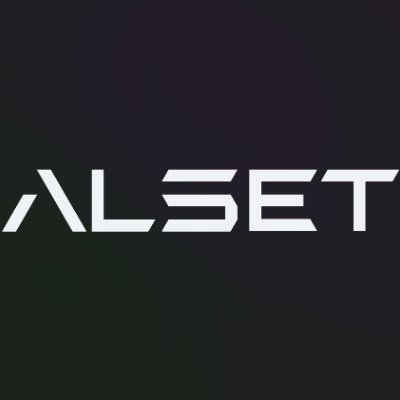Closing at $3.10 on Tuesday, Xiao-i Corporation (NASDAQ: AIXI) is hardly a contender to break into the Mag 7. But that doesn’t mean it won’t have the attention of those that are, particularly their lawyers, who most certainly wouldn’t look forward to having their clients signing licensing deals for the technology they thought they owned.
Apple (NASDAQ: AAPL) may be the first to open its wallet. They’re in the final innings of a patent case that could set off a chain reaction across the entire AI industry. While Apple may not have broken into a full sweat ahead of the final verdict, it’s a fair bet to say they’re perspiring heavily, especially after a court in Beijing already ruled that they infringed on Xiao-i’s patent. That’s not just a slap— it’s a staggering body shot.
While the final ruling is still pending, Apple might be pacing ahead of it, caught in what could become a defining IP battle of the AI era— and leaving AIXI standing to make billions.
Apple Might Regret Taking The First Swing
By the way, Apple didn’t stumble into this fight—it picked it. The company challenged the validity of Xiao-i’s foundational patent on voice interaction tech, or, more specifically, the tech that inspires Siri to chat. That gamble backfired. In June 2024, the Beijing Intellectual Property Court upheld the validity of AIXI’s intellectual property, paving the way for the subsequent trial. The final round, which was just concluded in the Shanghai High Court, is now awaiting judgment—and know this— AIXI didn’t just throw wild punches. It may have connected enough to win the unanimous favor of judges’ scorecards.
The patent at the heart of this case—Chinese patent ZL200410053749.9—covers core voice interaction tech. It’s not a gimmick. It’s fundamental. And if the final ruling comes down in Xiao-i’s favor, it can represent more than just a win. It can inspire a licensing revolution—and financial windfalls. And keep in mind that while this case may qualify as one of China’s largest patent infringement cases in history, it still only covers iPhone 12 & 13— meaning that Apple could still be on the hook for millions more from including similar technology on iPhone 14, 15, and 16.
A $40 Million Company With a Billion-Dollar Trigger
Currently, Xiao-i’s market cap is near $40 million. But the court case AIXI is currently winning could instigate a damages payout exponentially larger than that.
Let’s do the math.
Apple has sold hundreds of millions of iPhones in China, nearly all with Siri. A damages award of just $1 per unit could total $100–200 million. At $5 per unit? Half a billion— easily. And that’s not a pipe dream. It’s precisely what happened in Qualcomm’s $4.5 billion global settlement with Apple over wireless tech.
The script is familiar: a scrappy, IP-rich company fights to prove that its tech is being used without a license. And once the patent is validated—and now it has been—the narrative flips fast. Suddenly, Xiao-i looks less like an up-and-coming AI player and more like a royalty machine.
If Apple Pays, Everyone Pays
While Apple could be the first to open its wallet, it likely won’t be the last. If Xiao-i scores a decisive win, every voice-enabled platform operating in China—or leveraging similar AI systems—might be next in line for licensing talks. That means: Google (NASDAQ: GOOGL), Amazon (NASDAQ: AMZN), Samsung, Xiaomi, Huawei, Baidu—anyone with a voice assistant on the Chinese grid.
Simply put—if Siri’s design infringes, so might everyone else’s. This lawsuit is no longer just about Apple. It’s the start of a playbook—one that turns AIXI from a quiet, under-the-radar AI company into the Qualcomm (NASDAQ: QCOM) of conversational tech.
And no, AIXI isn’t patent trolling. Xiao-i has been developing AI for over two decades. They’re not shaking down the giants—they’re collecting overdue rent.
Xiao-i’s Breakout Moment
Think Qualcomm. Think ARM (NASDAQ ARM). These aren’t consumer brands—but they’re IP titans. Xiao-i may be next.
With its patent upheld, initial rulings in its favor, and the potential for industry-wide licensing, Xiao-i is poised for a radical revaluation. Its current stock price doesn’t reflect the size of the opportunity. Not even close.
If Apple loses and settles—or worse (but perhaps appropriately), pays ongoing royalties—the floodgates are open. And with China’s courts increasingly focused on protecting domestic innovators, Xiao-i’s strategy may become the gold standard for IP enforcement in the AI era.
Here’s the twist: Xiao-i doesn’t need to win the market. It already won in court. It doesn’t need to out-innovate Apple. It just needs to make Apple and others acknowledge what they’ve used—and pay accordingly.
That’s the same model Qualcomm used to become a multi-billion-dollar IP juggernaut. And it’s how Xiao-i could turn its modest $3 stock into one of the most explosive tech stories of this AI-infused decade.
Disclosure: The information contained on this article is not and should not be construed as investment advice, and does not purport to be and does not express any opinion as to the price at which the securities of any company may trade at any time. The information and opinions provided herein should not be taken as specific advice on the merits of any investment decision. Investors should make their own decisions regarding the prospects of any company discussed herein based on such investors’ own review of publicly available information and should not rely on the information contained herein.
The information contained in this article has been prepared based on publicly available information and proprietary research. The author does not guarantee the accuracy or completeness of the information provided in this document. All statements and expressions herein are the sole opinion of the author and are subject to change without notice.
Any projections, market outlooks or estimates herein are forward-looking statements and are based upon certain assumptions and should not be construed to be indicative of the actual events that will occur. Other events that were not taken into account may occur and may significantly affect the returns or performance of the securities discussed herein. Except where otherwise indicated, the information provided herein is based on matters as they exist as of the date of preparation and not as of any future date, and the author undertakes no obligation to correct, update or revise the information in this document or to otherwise provide any additional materials.
The author, the author’s affiliates, and clients of the author’s affiliates may currently have long or short positions in the securities of certain of the companies mentioned herein, or may have such a position in the future (and therefore may profit from fluctuations in the trading price of the securities). To the extent such persons do have such positions, there is no guarantee that such persons will maintain such positions.






